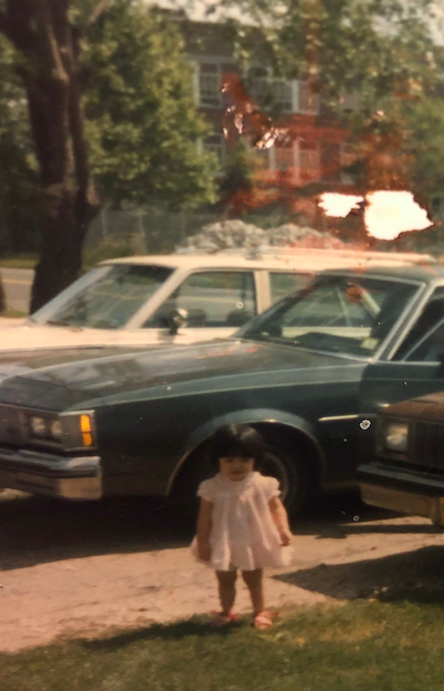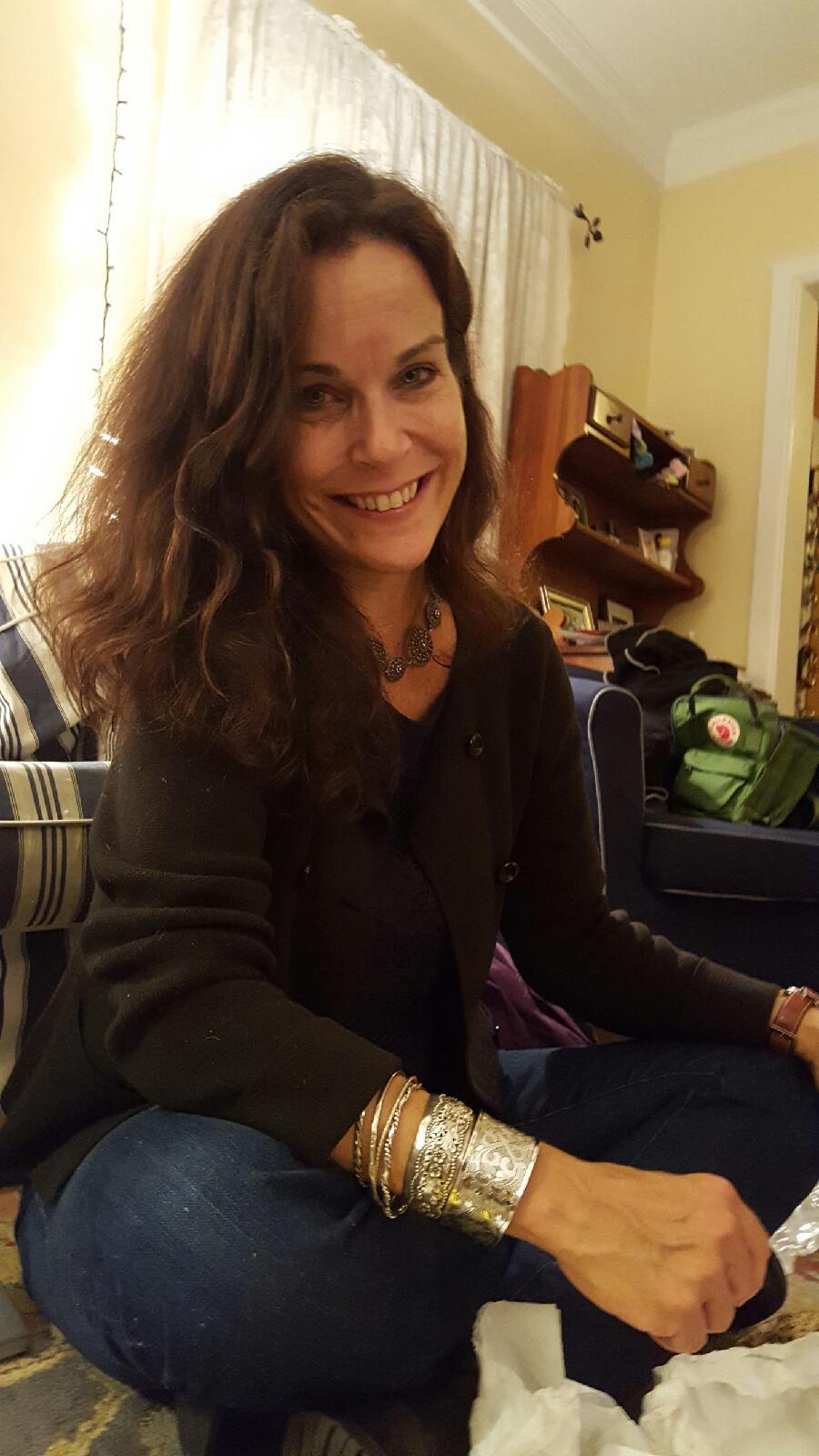By JANE WONG

Matawan, New Jersey
Over and over, I dig thin flower stems into the earth, as if mending a hole in an old shirt. The earth buckles at my persistence. I imagine the worms, deep in the ground, ducking each stem in slow, pink frenzy. The flowers are from Safeway along Route 18—dip-dyed daisy petals in blue and pink food coloring. It’s strange to return these gaudy flowers back to the soil. But they were the only ones we could find in the store that weren’t browning at the edges. If you’re going to bring flowers for the dead, they better not be dead themselves.
We’re celebrating Grave Sweeping Day, also known as Qingming. Since my father left our family decades ago, my brother, mother, and I visit my paternal grandparents’ graves alone these days. The cemetery is unsurprisingly empty; so few people visit the dead in this country. In the distance, you can hear cars revving up and honking. We’re in North Jersey, which is strip-mall country, and there’s a big redline sale happening somewhere at all times. On a lower hill, I spot another Chinese family, carrying a whole roasted pig—a pork procession. In my nostalgia, I’m briefly jealous of their celebration, of how large and complete their family looks. They huddle around the festive pig, circling their ancestor’s marbled headstone like a cosmic crown.
*
As a child, my family and I would pile into our busted black and white Grand Marquis every year and drive to the cemetery – Celine Dion always, inexplicably, on the radio. I can’t remember exactly when we went, but I knew it was around spring—late March or early April. My father’s entire side of the family would show up to honor my great grandparents; there were probably thirty of us—many of the adults in greasy aprons, straight from working at the restaurant, including my grandparents. Flower bouquets, rusted lawn chairs, Peking duck, chicken wings, longevity noodles, wontons, all kinds of bao, rice wine, oranges, incense, funeral money, buckets to burn said funeral money, and lots of shouting at everything and nothing in particular. Once, I mixed up Easter for Grave Sweeping Day because we drew bunnies in puke-colored pastel crayons at school. And so I painted eggshells to offer to my ancestors. Sweaty in a too-frilled dress, the colors rubbed off and stamped my arms. Each time I placed a painted egg on the ground, it rolled down the grassy hill, goddamn Jack and Jill. One of my uncles laughed, chopping chicken leg after chicken leg, the crispy skin shining like new money. Gweilo, he said in Cantonese, what kind of daughter doesn’t know what to bring for the dead?
*
Recently, I learned that families from lower socioeconomic classes in the U.S. tend to bury their dead rather than cremate, the focus being on collective grieving—a constant return to the grave to make offerings. I think about burning so much funeral money for my ancestors, they forget the poverty of their lived lives: the discount broccoli, the stolen napkins from Dunkin Donuts, the rotting teeth.
In all honesty, I’ve missed years of going to the cemetery for my ancestors on both sides of my family, which I feel guilty about. As a poet, I try to tell myself: aren’t my poems a kind of offering? In “A Cosmology,” I set an altar in the poem, write: “I scrub the sugar off my face/ and offer this kiss:/ my gold-leaf self, sheet by sheet.” If I could transmit my words across worlds, could lacquer them in doughy deliciousness to feed my ancestors, I would. But that’s not enough, can’t be enough.
Even writing this, I’m not sure what language can do. Or what I can truly offer. Messy poems, Safeway flowers, clownish eggs. What failures, what odd transmissions. I want to kneel again to the earth, to pluck away dandelion weeds and imagine holding my grandparents’ hands, each carrying the weight of oranges—how peeling fruit for someone is a sign of tenderness, love. I don’t know what to offer, but I can say this: I am listening, trying. Across so much distance, so much traffic and warbled life, my ear is tuned to the ground, to you, to all that came before and its sugar-gilded deluge.
Jane Wong‘s poems can be found in Best American Poetry 2015, American Poetry Review, POETRY, AGNI, New England Review, and others. Her essays have appeared in McSweeney’s, Black Warrior Review, Ecotone, The Georgia Review, Shenandoah, and This is the Place: Women Writing About Home. A Kundiman fellow, she is the recipient of a Pushcart Prize and fellowships from the U.S. Fulbright Program, the Fine Arts Work Center, Artist Trust, Hedgebrook, and others. She is the author of Overpour from Action Books, and How to Not Be Afraid of Everything, which is forthcoming from Alice James. She is an Assistant Professor of Creative Writing at Western Washington University.
Photo courtesy of the author.




